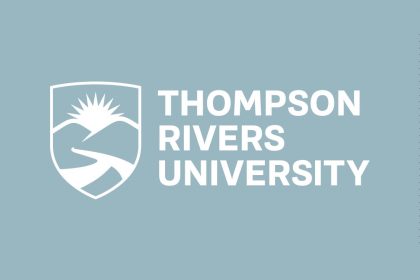If you missed the first three stories in this five-part series, you can find them here: Part 1: Stefania Pizzirani, Part 2: RoseAnne Timbrell, and Part 3: Michael Corman.
By Claire Hay and Helena Prins
In the fourth installment of our Ditch the Final Exam series, we introduce you to Amea Wilbur, who has a trauma-informed approach to assessment. She gave her adult education students a poster presentation as their final assignment and aligned the assignment with learning outcomes to prepare them for when they are adult educators and want to present their research at conferences.
Amea Wilbur is an assistant professor at the University of the Fraser Valley (UFV). She received an EdD from the University of British Columbia in 2015 for an action research study that explored the assumptions and understandings brought by English as an additional language teachers to teaching students who they believed had experienced trauma. In 2017 she received the AMSSA Award for her work with marginalized populations and for innovative programming that supports diversity and promotes integration. She also received the Gordon Selman Award for contributions to the understanding of the social and historical foundations of adult education in Canada. She recently collaborated with the Centre for Migration at the University of British Columbia on season 2 of the podcast series Global Migration.
In the Adult Education department at UFV, Amea teaches courses in principles and practices in adult education, adult education in Canada, and program planning and evaluation. When she develops assessments, Amea uses a trauma-informed approach and alternative assessment due to the impact of exams and proctoring on students. She wants everyone to consider the impact of high-stakes exams on student well-being, especially in a pandemic. Giving choice is one of her most important principles. For example, when she assigns group work, she recognizes it may cause trauma for some, so she offers choice to give students a sense of control and a stronger connection to their own lived experience while enhancing meaning making. It is important to provide opportunities for students to choose how to demonstrate their learning in relation to course outcomes; alignment is key.
Amea shares an important reminder that as instructor we bring our own personal approaches and biases to assessment, and students do the same.
Amea admits that not all students are ready for reflection, and it takes longer for some to understand what it means when you say, “Show me, don’t tell me.” She provides detailed audio feedback to students and arranges one-on-one interviews where possible to discuss feedback. Although written and oral feedback can take time, it becomes a conversation, and one-on-one interviews help build relationships.
Using a rubric supports Amea’s assessment process. She uses the expertise of her Learning and Teaching Centre and reminds us we do not have to go at it alone.
Listen to Amea’s story here:
Top tips from Amea’s story:
- Be aware of the impact of exams and proctoring on students’ mental health.
- Providing alternative formats of assessment acknowledges and reflects different ways of learning.
- Make sure your assignments and learning outcomes are aligned, and consider how the assignments might relate to students’ current or future workplace.
Inspired to re-examine your exams? Take the FLO Bootcamp Alternative Assessment Challenge! Do you have a success story of using alternative assessments to replace the high-stakes final exam in your course? Want to share your story? We invite you to contact Helena Prins, advisor, Learning and Teaching, at BCcampus.
Learn more:
- Effectively Moving Away from Traditional Proctored Exams in First-Year Physics Courses
- Exams: Who are we leaving out?
- On the Front Lines of the Pivot to Online: Measuring the Real Impact of Alternative Assessment in Remote Learning
The feature image for this post (viewable in the BCcampus News section at the bottom of our homepage) is by Andrea Piacquadio from Pexels
